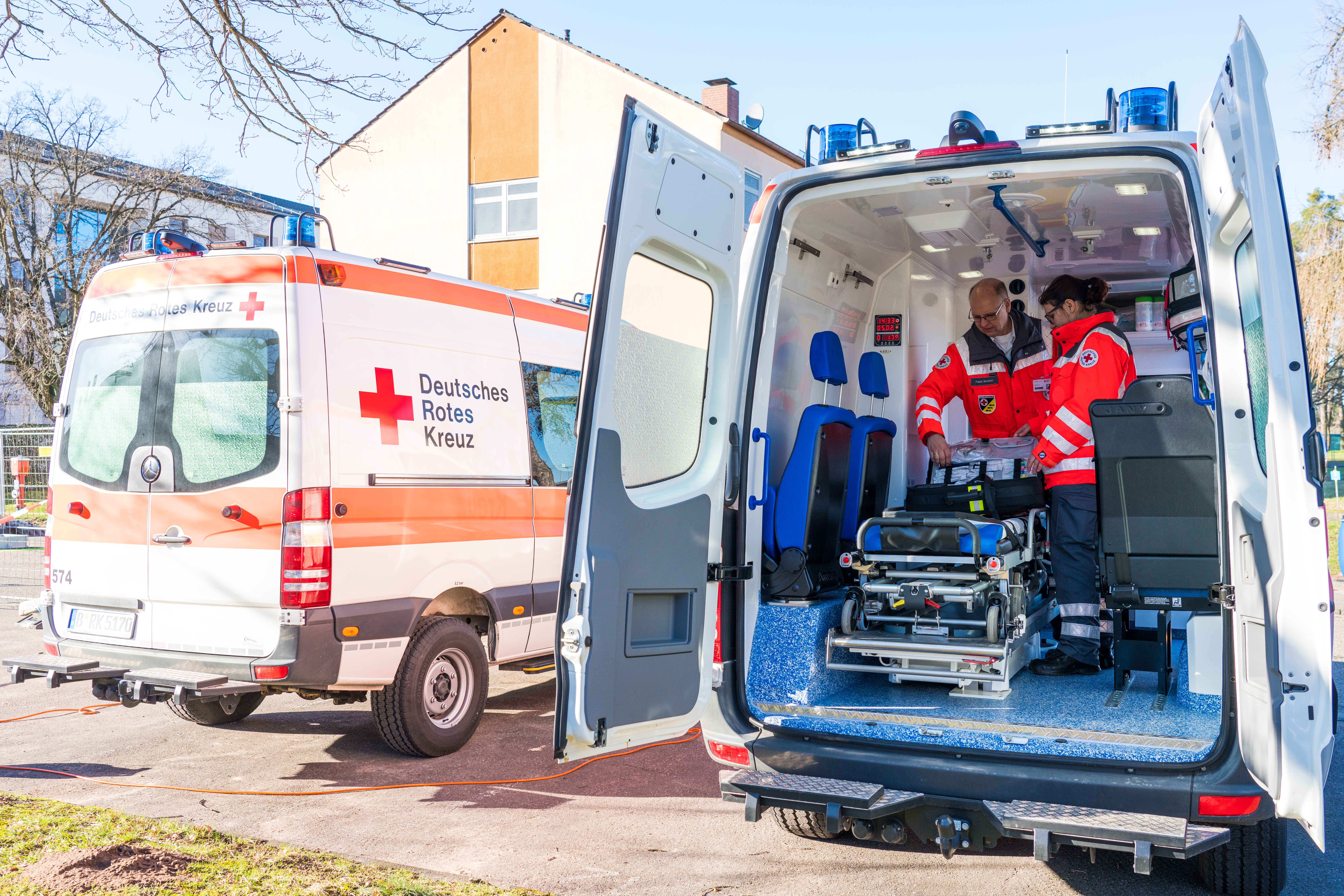Flattening the Curve
The novel coronavirus disease (COVID-19) is now a major threat in many parts of the world. Exceptional measures have been undertaken by governments to contain the spread of the virus and to take care of those who are adversely impacted. Depending on the particular phase of the outbreak, Red Cross and Red Crescent volunteers and staff around the world have been working to support preparation, response and mitigation activities, with a particular focus on the most vulnerable people and communities.
COVID-19 symptoms include fever, breathing difficulties and coughing, while severe cases can lead to pneumonia, kidney failure or death. Everyone can be affected by COVID-19, but older people and individuals with pre-existing medical conditions are more at risk. Many of the symptoms are similar to other respiratory diseases, which poses challenges for screening and diagnostic efforts.

First identified in China in December 2019, the World Health Organisation (WHO) declared COVID-19 a global pandemic on 11 March 2020. After weeks of spreading globally, Europe has now become the epicentre of the outbreak. Countries severely affected have put various measures in place, including closing businesses and schools, suspending international travel and imposing social distancing. On 17 March, the EU decided to close all Schengen borders to reduce the spread of the virus between countries.
National Red Cross Societies across Europe have been at the frontline of the response, with activities ranging from thermal screening at airports and awareness-raising actions, to home and prehospital care. In Italy for example, volunteers are delivering medicine to the homes of people in self-isolation, while the Spanish Red Cross has mobilised tens of thousands of volunteers to provide telephone-based support, deliver basic goods to families, and offer homeless people a place to sleep. Many Red Cross Societies such as the Bulgarian Red Cross, the Croatian Red Cross and the Slovenian Red Cross, are making use of social media to share news and information about the outbreak. In addition, the Finnish Red Cross and the Italian Red Cross are running projects that specifically target migrants and refugees. As self-isolation can pose a challenge to mental health, the Red Cross in many countries has launched hotlines and other digital services for people to use when they feel lonely. For example, the Danish Red Cross has created a forum where volunteers digitally visit the elderly.
On a global level, the International Federation of Red Cross and Red Crescent Societies (IFRC) is coordinating with all National Societies to support their response activities, scaling up COVID-19 programmes tailored to the needs of individual countries. A joint 800 million CHF global appeal has been launched with the International Committee of the Red Cross (ICRC) to enhance Red Cross Red Crescent action to support the world´s most vulnerable communities in halting the spread of COVID-19 and recovering from its effects.
The COVID-19 outbreak has been accompanied by an over-abundance of information – much of which is inaccurate – that makes it hard for people to find trustworthy sources and reliable guidance when they need it. Red Cross and Red Crescent volunteers worldwide are being trained to help their communities to manage the outbreak, sharing prevention information, and reducing rumours and panic by providing facts and pointing to reliable sources.

Each one of us has a responsibility and can play a big role in helping to slow down the spread of COVID-19. Simple actions, such as washing your hands regularly or covering your mouth and nose with a tissue or your elbow when coughing or sneezing, can go a long way towards protecting yourself and others. Physical distancing is an effective way to stop or reduce contagion. You can support your community by respecting local public health measures like quarantine and self-isolation, as well as by checking in on high-risk individuals. It is also important to keep updated regularly about the outbreak from reliable sources, as strategies will improve as more is learned about the disease.
But being in quarantine can put a strain on your mental health and emotional well-being. Especially when living alone, it is important to (virtually) stay in touch with loved ones. Additionally, regular exercise and a healthy, balanced diet can contribute to maintaining a positive mindset. Employees that are working from home should let as much sunlight and fresh air as possible into their living space, as well as find ways to relax and take frequent breaks.
Emanuele Capobianco, IFRC Director of Health, emphasises the importance of being connected during quarantine: “Talk to people who you love and talk to people who love you. They will need your support and you will need their support. Bringing a social connection in(to) your life will be extremely important. And if you know of an older person who could be lonely, please give her or him a call.“
The EU has been supporting efforts to tackle the COVID-19 outbreak by facilitating ongoing coordination between Member States to share information, assess needs, and ensure a coherent EU-wide response. The European Commission is also offering assistance through the Union Civil Protection Mechanism which coordinates disaster response in and beyond Europe, including through the repatriation of EU citizens. On 17 March, an advisory panel of European epidemiologists and virologists was launched to formulate EU guidelines on science-based and coordinated risk management measures.
The European Centre for Disease Prevention and Control (ECDC) also plays a key role in information-sharing and risk assessment across the EU. As of 20 March, the ECDC classified the risks of healthcare capacity being exceeded, of transmission in health and social institutions, and of sustained community transmission as high, thus requiring strong and immediate solutions.
For media inquiries, please contact Eva Oyón on: eva.oyon@redcross.eu or +32 2 235 09 22

